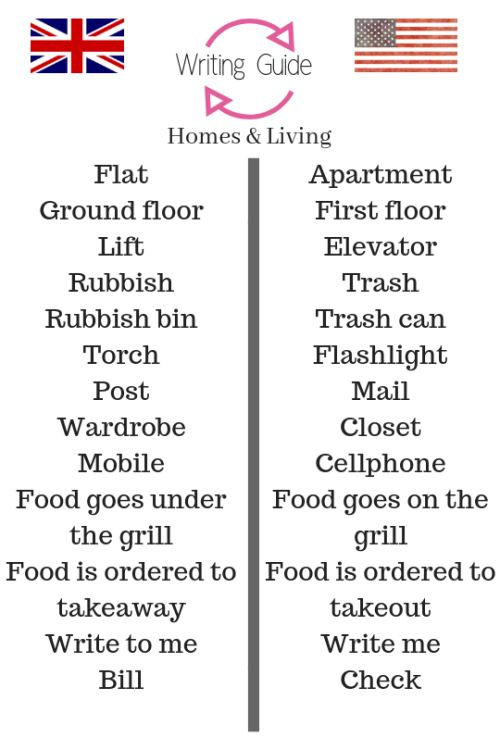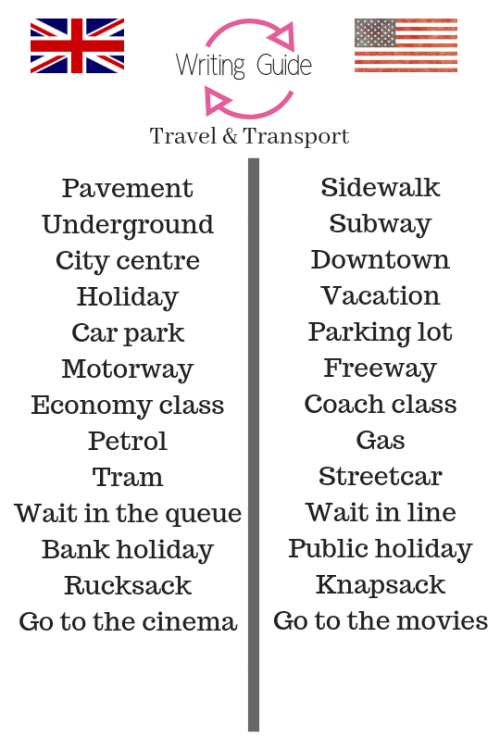culmaer: esoanem: thereallieutenantcommanderdata:glyph-of-wolves:tagaston: For any of you who ar
culmaer: esoanem: thereallieutenantcommanderdata: glyph-of-wolves: tagaston: For any of you who are writing ‘across the pond’-here is a little guide I put together of some common differences between British and American English! I will add though, some of these switch/overlap; for instance: a lot of people in America say makeup, ground floor, wash your hands, etc. and people in England do the same thing. Not everything is set in stone, and words can change Weird, I’m American, but “wash up” to me sounds very old-fashioned. Like, I’ve heard my grandparents say that, but everyone else I know says “wash your hands”, and “cosmetics” just sounds formal, “make-up” is definitely the more common term in my experience. Also, some of this is wrong. “Underground” is specifically the London Underground (aka “the Tube”), we generally call it by the local name (e.g. “metro” in Paris, “subway” in New York etc), and “queue” is a verb on its own. Sure, you can “wait in the queue”, but that makes it sound like you’re waiting for something else (e.g. for your friend to arrive) whilst queuing, the equivalent of “to wait in line” is definitely just “to queue” the British (and South African) “grill” is called a “broiler” in North America. so “under the grill” and “on the grill” are actually different things. @lorataSouth African English is mostly the same as British, but we use some Americanisms like cellphone, pants and public holiday. there are also uniquely southern African words :trainers/ sneakers = takkies, tekkies(woollen) jumper/ sweater = jerseyaubergine/ eggplant = brinjalcoriander/ cilantro = dhania (or coriander)crisps/ chips = chips (or simba chips)chips/ fries = chips (or slap chips)courgette/ zucchini = baby marrowfizzy drink/ soda = cooldrink -- source link
Tumblr Blog : tagaston-blog.tumblr.com
#english#english dialects#dialects



